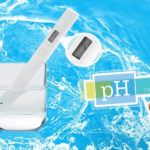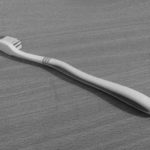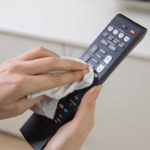With the mindset of “out of sight, out of mind”, you not only make your kitchen more cluttered but also have a negative impact on the health of your entire family. Because the things you don’t need will accumulate dust and grime over time. So it’s best to get rid of them and make your kitchen cleaner and tidier.
Scratched cutting board
The cutting board is one of the items that needs to be cleaned daily to protect the health of the whole family. Gravely says, “Whether the cutting board is made of wood or plastic, if it has many cracks, it’s time to throw it away.” Bacteria like to live in deep grooves, and it’s difficult to clean properly with such deep cracks.
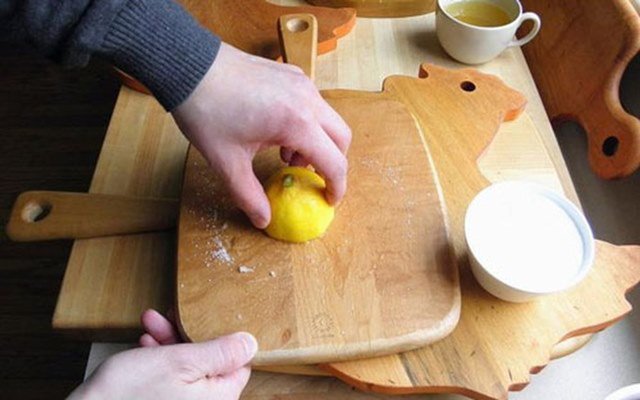
Scratched non-stick pan
Gravely points out that when a non-stick pan has deep scratches, it no longer functions as a non-stick surface. The Teflon coating can also be a problem because when it gets too hot, it can create smoke and cause flu-like symptoms.
Sponge
We can use a microwave or boil sponges to remove bacteria, but as Gravely notes, it’s difficult to clean a sponge: “The holes in it are a significant issue.” She also adds, “Even when boiled, it still harbors bacteria.”
The USDA recommends replacing sponges regularly, but Gravely believes it’s better not to use them continuously. Instead, you can use a bath towel or an old hand towel to wipe, as the fabric material will not retain as much dirt as a sponge. You can also use a paper towel, but it may not be suitable for environmentally conscious individuals. If you choose to use a towel, you should replace it every two days. You need to take it to wash immediately if the towel smells, whether it’s a sponge or a cloth.
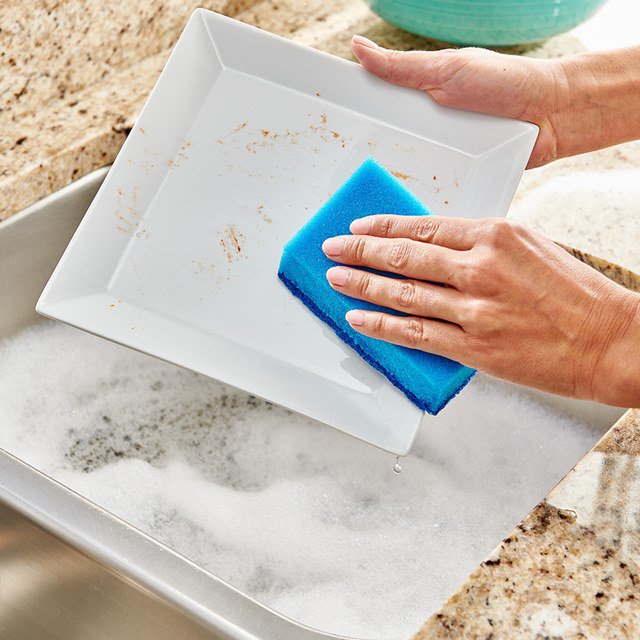
Opened cans
Canned meat and vegetables have a very short shelf life. Cooking recipes usually only require about half a can, according to Gravely. For the remaining portion, “maybe you should make soup or freeze it for later use.”
Frozen food
If the food in the freezer has crystallized, it’s time to throw it away. Gravely says that if you handle the food correctly during preparation and refrigeration, bacteria won’t be a problem anymore. But if you see a lot of ice crystals in the food or it looks really dry and you don’t recognize what it is anymore, it may no longer have a good taste.
Forgotten food
Sometimes you find leftovers in a hidden corner of the refrigerator and don’t remember leaving them there? It’s best to throw them away for safety! Gravely says, “Only use cooked food or leftovers within three to four days.”
If you don’t remember clearly, it’s likely that the food has been there for too long. You should never eat if you see signs of mold on the food.
Expired spices
Do you still use spices without paying much attention to their expiration dates? Sometimes we buy sauces for special recipes and never use them again,” Gravely notes. But this can unintentionally harm your health!
Most different sources, including Graves, agree that spices become ineffective and lose their flavor after about a year. So you should check your spices regularly and throw them away in time.
According to PhunuVietnam
8 Common Mistakes People Make with Cutting Boards
Are you using your cutting board correctly? Many Vietnamese households rely on cutting boards in their kitchen, but not everyone knows how to use them properly, especially when it comes to wooden cutting boards. Check out these 8 mistakes to avoid when using a cutting board to ensure both hygiene and safety for everyone in your family.
Is Refrigerated Leftovers Linked to an Increased Risk of Cancer?
Dr. Lam Van Man, Head of Research, Development and Technology Transfer Department of the Institute of Safety Food, has warned of the risk of food poisoning when reheating leftovers from the refrigerator. But what should we be aware of when it comes to the possibility of these leftovers causing cancer? Here, we explore what the experts have to say on the matter and offer some tips for safe eating.
























